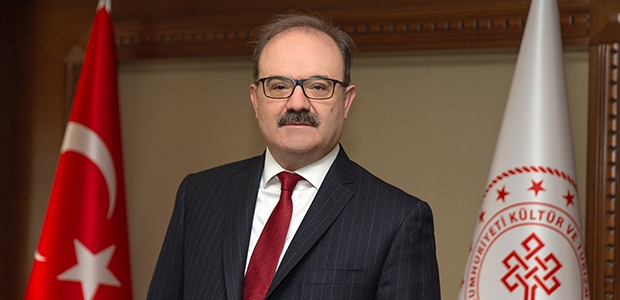EU AND TURKEY: AN EMERGING CLIMATE OF CONSENSUS 28.12.2015
The agreement reached at the EU-Turkey Summit represented a historic step forward in relations between Turkey and the EU. The scope of the agreement is unprecedented, encompassing not only the resumption of accession talks, but the progression of a co-ordinated response to the migration crisis. However, it is important to view this development within the context of a wider advancement of bilateral relations between Turkey and the EU.
Indeed, there exists a growing consensus of the need for a co-ordinated approach, which best addresses the challenges facing us all – from the economic instability that continues to define the post-crisis period, to the war in Syria, to the ongoing threat presented by terrorism. These issues require the consolidation of this mutually beneficial relationship, as well as recognition that the Turkey-EU relationship is symbiotic: Turkey occupies a key geographical position, is leading the response to the refugee crisis, has a vibrant economy and is a key partner to the EU in responding to prevailing energy security challenges.
There have been a number of notable developments that serve to demonstrate the emergence of this period of constructive engagement between Turkey and the EU. This is perhaps most evident in the progression of a re-energized negotiating process for Turkish accession to the EU. Turkey has already aligned domestic legislation with the EU’s “acquis communautaire”, which constitutes the body of European law, in a number of key areas. It is also noticeable that dialogue highlighting the benefits of Turkish membership has re-entered popular discourse throughout Europe. Building on this relationship, with the eventual goal of permanent membership, should be viewed as an area of key strategic importance for the EU.
The response to the EU Commission’s recent report on enlargement serves to further highlight Turkey’s commitment to collaboration. Whilst there is consensus that the report underplays the significant levels of progress Turkey has already achieved, particularly with regards to the economy, energy security, rule of law and on tackling corruption, it is clear that there is a great deal of common ground between the two parties. Turkey is engaged in regular discussions with EU representatives, thus improving cooperation and policy interconnectivity in a number of areas highlighted in the report.
The emerging climate of consensus can also be witnessed in the development of an agreement aimed at tackling the refugee crisis. The arrangement, agreed in Brussels last month, should be seen in a uniquely Turkish context as the country hosting the largest number of refugees in the world. Turkey has already invested unprecedented levels of support to refugees, committing more than $8 billion to the cause and producing world leading facilities for these unfortunate victims of conflict. However, it is clear that the burden of the refugee crisis cannot be shouldered by one country alone. Indeed, the only way to address the refugee crisis is through the progression of international cooperation, to complement country-by-country domestic programmes. There is recognition that every possible step must be pursued to help those in need, and the 3 billion euro cooperation package reached with the EU will facilitate the creation of a fund that will provide direct assistance to refugees.
However, it must never be forgotten that the Assad regime is culpable for the carnage and chaos that has facilitated the refugee crisis and therefore cannot be part of any solution. Assad’s brutal regime is responsible for thousands of deaths, the displacement of millions more and has created the necessary conditions for the rise of Daesh (ISIS). Turkey will continue to work closely with EU members, not only to address the refugee crisis, but to achieve a lasting political solution in the interests of the Syrian people.
The reaffirmation of Turkey’s relationship with the EU should not be viewed in isolation, but rather in the context of Turkey’s consensus-driven approach to international politics and openness to dialogue across hemispheres of influence. It is clear that the fluctuating global landscape requires international actors to look ever outward, engaging in a proactive and constructive manner. By hosting the recent G20 Summit in Antalya, leading the response to the refugee crisis and contributing to the global efforts to eliminate Daesh, Turkey has already demonstrated a clear desire to facilitate cooperation at every opportunity. As the agreement reached at the EU Summit demonstrates, there is fair reason to be optimistic that this mood of consensus will continue for years to come.
Dr Serdar Çam, President of the Turkish Cooperation and Coordination Agency (TIKA), Prime Ministry of Turkey
EU Reporter Correspondent | December 11, 2015






